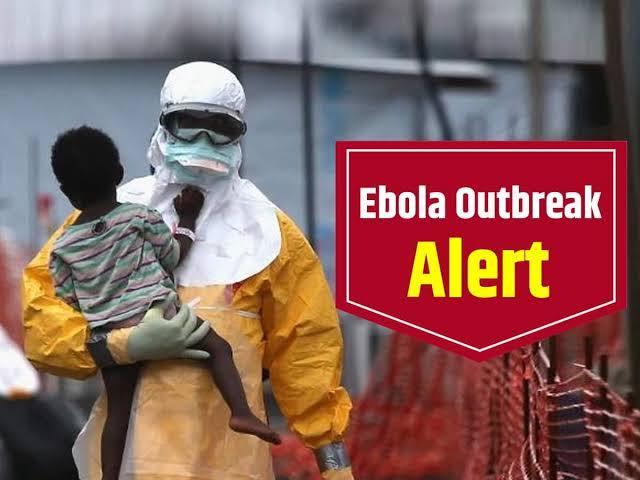
James Uche
Nigeria is on high alert as the Federal Government has stepped up surveillance and health checks at all entry points following a fresh outbreak of the deadly Ebola Virus Disease in the Democratic Republic of Congo (DRC).
The Director of Port Health Services at the Federal Ministry of Health and Social Welfare, Dr. Akpan Nse, told newsmen on Friday that new staff had been deployed to strengthen monitoring at airports, seaports, and land borders. He said every traveller from the DRC would now undergo strict screening, including medical history checks and mandatory health forms.
The Democratic Republic of Congo’s health authorities confirmed on September 5 that Kasai Province was experiencing an Ebola outbreak, with 28 suspected cases and 16 deaths, including four health workers. Samples tested at the National Institute of Biomedical Research in Kinshasa confirmed the strain as Ebola Zaire—the deadliest of the known variants.
Dr. Nse warned that Nigeria remained at risk of importation due to frequent travel links with Congo, but assured that “every inbound traveller coming from Congo to Nigeria is thoroughly screened… even those transiting through Congo.” He added that with support from the World Health Organisation (WHO), Nigeria had recruited more personnel to reinforce surveillance and keep thermal scanners functional at all airports.
The outbreak in DRC comes amid overlapping health crises across Central and West Africa, including cholera, malnutrition, and displacement. Since 1976, the DRC has battled 15 Ebola outbreaks, the last being in Equateur Province in 2022.
WHO Director-General, Dr. Tedros Adhanom Ghebreyesus, confirmed the release of $500,000 in emergency funds and the deployment of rapid response teams to trace contacts, collect samples, and vaccinate frontline workers. “We had previously prepositioned 2,000 doses of Ebola vaccine in Kinshasa, which we are releasing immediately,” he said.
Experts in Nigeria are warning that the country must not lower its guard. Associate Professor of Infectious Diseases at Adeleke University, Osun State, Oladipo Kolawole, urged coordination among government agencies to prevent importation. “We have the structures to handle Ebola, but vigilance is key,” he said.
Dr. Moses Adewumi, a virologist at the University College Hospital, Ibadan, emphasised strict adherence to travel protocols and early detection at entry points. He stressed that “early detection is the key to prevention,” calling on the government to tighten screening at airports and land borders.
Similarly, Dr. Iorhen Akase, Head of Infectious Diseases at Lagos University Teaching Hospital, noted that while Ebola transmission occurs mainly when patients are symptomatic, community vigilance was essential. “If you see someone ill, let them go to the hospital immediately,” he advised.
As Nigeria braces for possible risks, health authorities are banking on lessons from the 2014 Ebola scare, when swift containment prevented a national catastrophe. This time, experts warn, the stakes are just as high.
